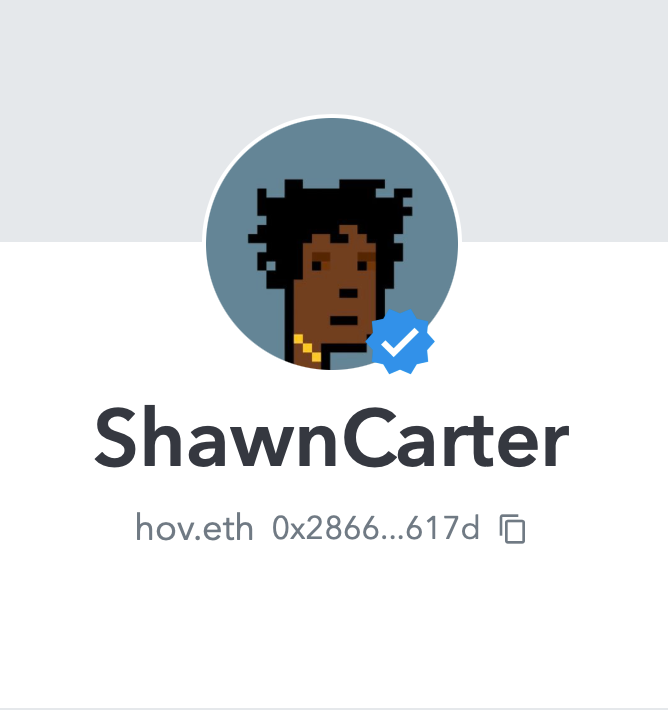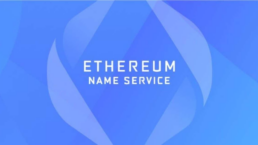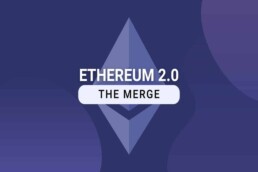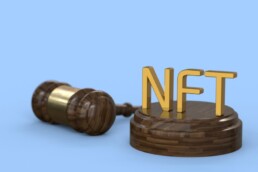Web 3.0 marks the next stage in the development of the internet and much like the domain name service (DNS) has been an integral part of internet infrastructure over the past 30 years, the Ethereum Name Service (ENS) could be equally important during the rise of Web 3.0.
What is the ENS?
The ENS converts machine readable addresses into human readable addresses, much like the DNS that connects human readable domain names to IP addresses on the internet. The ENS converts a 40 character string made up of letters and numbers into a simple name for the same wallet address. For example 0xbadcafea3C2a0aFd7185514Cd8F523eE0E00049F could be converted into AliceAndBob.eth. The domains are akin to a public-facing wallet and allow the owner to receive cryptocurrencies and NFTs using a human readable address.
The initial development of ENS was led by Nick Johnson and Alex Van de Sande, it was released by the Ethereum Foundation on 4th May 2017. However in 2018 it was incorporated as True Names Ltd, a non-profit company based in Singapore which now manages and funds development of the ENS.
It’s built on top of Ethereum smart contracts and domain names are sold using a Vickrey Auction. Names are not actually purchased but are rented for a specified length of time with the minimum permitted length being 1 year. The fact they’re registered using the ERC-721 standard means they can also function as an NFT and be sold by the owner.
The cost of purchasing an ENS name varies according to the length of the domain. Names with 5+ characters cost $5 a year, 4 character names cost $160 and 3 character names cost $640 but this could change with the introduction of Ethereum 2.0 and the improvements in network efficiency that it brings.
There are 3 parts to an ENS domain name:
- Top Level Domain (TLD) – Owned by the smart contract.
- Second Level Domain (2LD) – The part owned by the buyer of the domain name.
- Third Level Domain (3LD) – AKA the subdomain, it’s another layer of the 2LD.
An address, such as AliceAndBob.web123.eth, is written in the format 3LD.2LD.TLD.
Why Should Anyone Use An ENS Domain?
Purchasing an ENS domain shows involvement in the Web 3.0 space and allows a buyer to create a pseudonymous identity should they wish to remain anonymous. It could then be connected to an NFT avatar and other social media accounts, allowing the owner to create an entire community around their pseudonym without revealing their true identity.
This is especially useful for brands entering the Web 3.0 space which are aiming to build a large following early and quickly by bringing in fans from other platforms. The best way to do that is to use the same technology as early adopters, many of which already have .eth names.
By also launching NFTs and other projects using a .eth name, it makes it much easier for brands to distinguish themselves and gain a following quickly compared with using a 40-character string. 0xb1.eth is a famous DeFi entrepreneur whose wallet address starts with 0xb1 but who also uses it for his twitter handle. Many people in the crypto community have an interest in his wallet as he’s a crypto whale. He became commonly known as his .eth address of 0xb1.eth, rather than the NFT on his profile or his real name of Jason Stone. The account gained even more notoriety after he revealed he is suing the now bankrupt cryptocurrency lending company, Celsius.
ENS subdomains also give owners the option to extend their domain name. One example would be a company with a primary ENS name giving subdomains to employees so they can use them as an organization login for work rather than their personal information. This system is currently being used by the Tenzorum Project.
As ENS is native to the Etherum ecosystem, ENS domains don’t suffer from many of the security issues associated with the DNS system which stores information on a centralized server. Any successful hacks on this server could modify records to redirect users to malicious websites where personal information or money could be stolen.
Connections between 40 character wallet addresses and .eth domain names are secured by the Ethereum blockchain so once recorded on it, the connection between the 2 can’t be modified.
This makes it much more difficult to censor the owner of an ENS domain but as seen with social media today, this could be a positive or negative depending on the owner and an individual’s perspective on censorship/free speech. If a terrorist organization creates a .eth address to receive funds or publish content on the web by linking it to IPFS, it’s much harder for a government to shut it down than if it were to receive them in a standard bank account or publish content via DNS. However this isn’t the only issue with the ENS.
What Are The Issues With Using ENS?
Supposed Anonymity
One of the main attractions of using an ENS domain is its supposed anonymity. Using an ENS domain to send/receive money removes the anonymity as the ENS uses a public registry and the data linking a wallet address to an ENS address is publicly available. This means anyone who has the domain name can find the wallet address that owns the domain and potentially discover the actual owner, removing all anonymity from the process.
For example, someone may link a .eth address to their pseudonymous Twitter account. Anyone could then use Etherscan to identify how much crypto is held in that wallet and other wallets it transacts with. If another wallet holds a lot of crypto and has a lot of transactions with the .eth wallet it could be assumed that the other wallet is also owned by the individual.
That person could then be targeted on their social media platforms with crypto scams, which already plague Twitter. This issue would only occur if the person chooses to link the .eth name to a social media account where their real identity can be discovered and can easily be avoided by simply not linking the two.
Domain Squatting
Another issue with DNS is so called domain squatting. Domain squatting involves buying domain names in the hope that they’ll one day be worth more, rather than using them to help build a product or service.
Some people own hundreds of ENS domain names but are just hoping to sell them on again to make money. There’s no doubt money can be made by doing this. Amazon.eth was sold for 33 ETH (~ $100,000) at the start of 2022 and an anonymous ~$1 million bid was made for the domain in the middle of the same year.
This would have resulted in a profit of more than 1900% for the owner of the domain despite them never having used it. The bid wasn’t accepted, maybe because the owner is holding out for more during the next crypto boom. Many DNS names that may one day be popular are already owned for the next 10+ years by individuals just looking to sell them on.

In July 2022 nike.eth was bought for ~$67,000 and is owned until 2042 unless sold again. The same wallet owns over 100 other ENS names including coke.eth, ipad.eth and rose.eth. Tt’s a fair to say they’re probably never going to use them to build a product or service around. There is a proposal to make squatting more difficult by imposing a 2.5% fee on secondary sales although some believe it should be higher.
Centralization
At present the ENS root node is controlled by only 7 individuals and they have the power to control renewal of ENS names, change the pricing and manage revenue. The ENS team plans to “reduce and decentralise human control over the system” in time. However there’s no set date to do this and until then the integrity and functioning of the ENS is largely under the control of this group.
Is It Worth Buying an Ethereum Domain Name?

With the upgrades to the Ethereum ecosystem happening over the next 1-2 years the, number of people getting involved in the space will likely increase and there seems to be plans to solve many of the current issues related to the ENS. On the other hand the ENS is relatively new and there may be unforeseen problems with the technology. It’s also not as decentralized as is sometimes made out so problems related to the people who control the root node could lead to issues.
Current owners of ENS domains include Jay-Z (hov.eth), Paris Hilton (parishilton.eth) and Budweiser (beer.eth). Owning a ENS domain will undoubtedly help these people/companies maintain and grow their brand in the Web 3.0 space and they can certainly afford to buy one. For a less wealthy individual or business looking to build a brand, it may be more unclear whether buying an ENS domain is a good investment.
If you’re trying to create a brand in the evolving Web 3.0 ecosystem buying an Ethereum domain name is probably a great place to start, especially if you can get it for a reasonable price.
Get more insights like this on the business and marketing of the metaverse delivered to your inbox. We’ll never spam you, ever.
Harry Harrison
After spending 3 years traveling around Australia and Asia I began writing about finance whilst stuck at home at the beginning of 2020 thanks to Covid. I've always had a strong interest in business and technology and he thoroughly enjoys learning more about anything connected to the Metaverse, NFTs or crypto. In my spare time he enjoys playing soccer, pool or chess and reading about history, science and technology.
Related Posts
December 8, 2022
Overview of NFT Use in the Music Industry
NFTs are a new technology set to revolutionize many old industries. One of…
December 6, 2022
The Impact of The Merge on NFTs
The Merge has been perhaps the most important development to the Ethereum…
December 1, 2022
How The SEC Might Regulate NFTs
The Securities and Exchange Commission (SEC) has taken a somewhat critical view…



